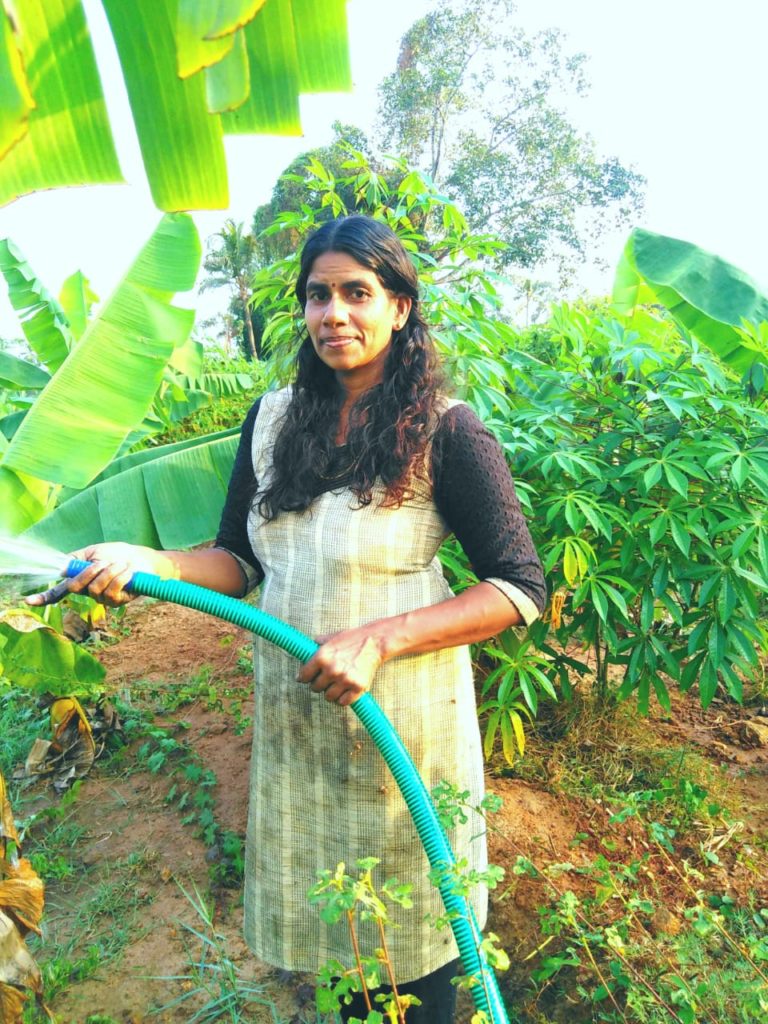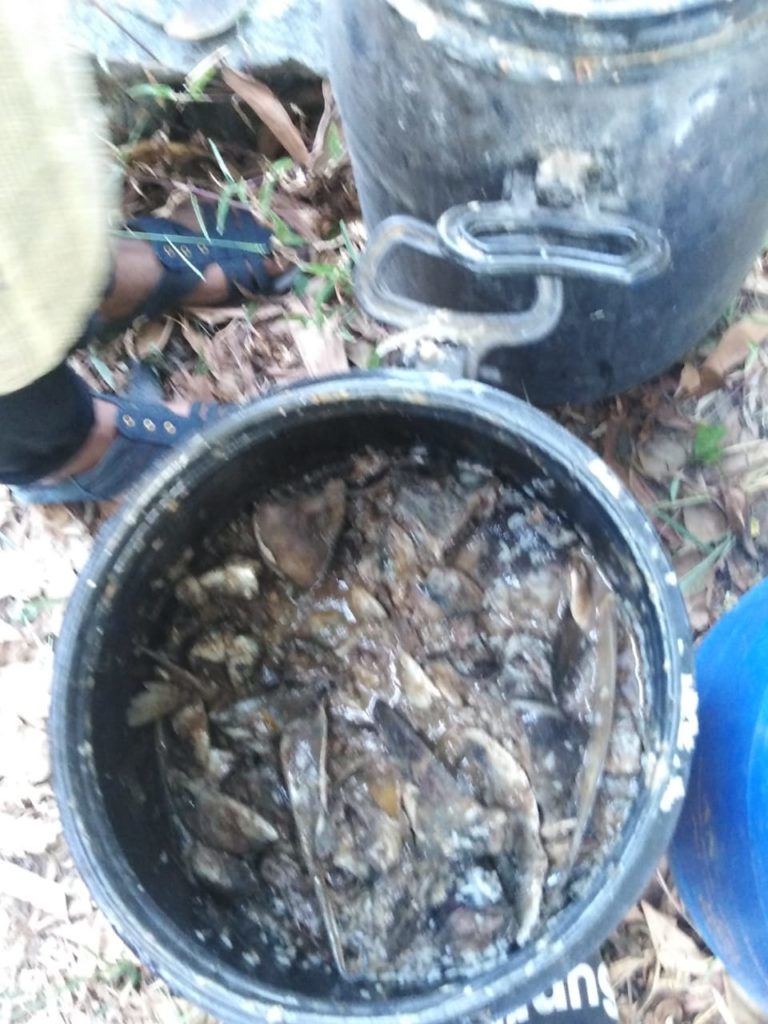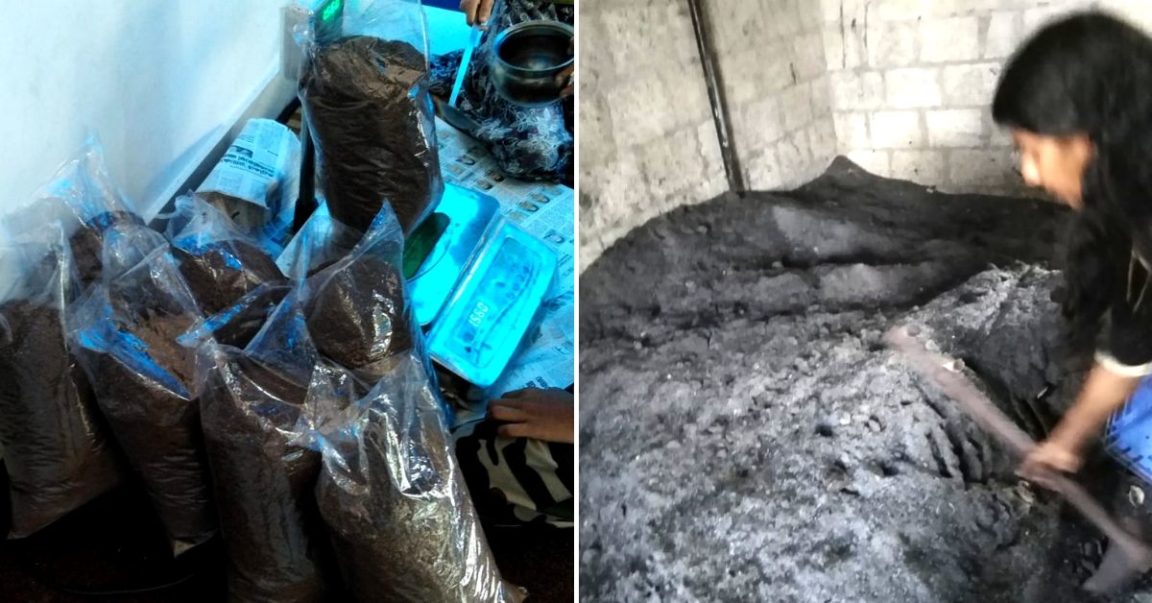In Kerala, the fisherfolk living by the coastline consider the sea to be their god. It rules their stars and gives them their livelihood.
Which is why, when fishing companies dump several tonnes of fish waste into the sea every single day, these communities feel devastated and helpless.
Because, it is through this act, that their temple, their home and only mode of sustenance, is being indiscriminately polluted.
Maheshwary, a woman farmer from the fishing community based in Ernakulam, is on a mission to undo this damage and has found an unusual use for the fish waste that could save the sea from such large-scale littering.
She collects fish waste from stalls and mixes it with formic acid to make Fertifish—an organic fertiliser that has proven to boost crops and give bumper yields!

Maheshwary on her farm.
In a conversation with The Better India, she mentions the origin of this idea.
“I hail from a fishing community from Vadanappally along the coast in Thrissur. I’d grown up seeing my father make use of the fish waste by sprinkling salt in it and then adding it to the bases of coconut palms. Believe it or not, every single one of these palms gave nearly double the yield year after year!” she shares, in conversation with The Better India.
That was a long time ago. However, Maheshwary never forgot her father’s lesson and was prompted to walk the same path many decades later, after seeing the rampant dumping of fish waste as well as plastic waste along the 35 km coastline in Munambam. She had moved to the coastal town after her wedding.
“I can tell you that roughly 23 tonnes of fish debris is dumped by big fishing companies and other fishermen right into the sea, every single day. In addition to the fish waste, plastic waste and other forms of garbage are also dumped. Together, these are not just polluting our sea but also annihilating the already endangered marine life. I was very disturbed when I remembered my father’s practice and decided to do something along the same lines so that the waste could be used in a better manner, thereby preventing pollution,” recalls Maheshwary.
That was early 2011. To further actualise her dream, a training program for creating value-added products from fish by Central Institute of Fisheries Technology (CIFT) came along her way.

The making of Fertifish. Courtesy: Maheshwary.
“I’m a farmer and grow bananas and other crops on a leased plot, where I’ve used this compost. The yield has been substantially better compared to when other types of composts and manures have been used! When some of the CIFT authorities saw my innovative solution, they asked me to never stop making these, and that’s how I started collecting fish waste from stalls to make more,” she recalls.
But Maheshwary did not want to do this on an individual scale. Seeing the amount of daily waste rotting along the coastline, she began approaching not just the local panchayat but also every possible platform that could help in eradicating this practice.
“I have been doing this since 2011. However, I’ve only faced disappointment or been given false hopes. Despite knowing that this revolutionary compost can save the coastal ecology, and help farmers get better yield, these officials have failed to take my idea into consideration, which I believe is because of the powerful fertiliser and pesticide lobbies. Doing this on my own is not economically viable, as we hail from an impoverished background and setting up the infrastructure to produce this on a large scale requires certain funding beyond our capabilities,” says a despondent Maheshwary.
She also shares that while she has enough space to develop the fertiliser on a large scale, she lacks the equipment. For example, a pulveriser, drums and other relevant materials.

Courtesy: Maheshwary.
“An investment of Rs 3000 can provide people with 9000 kg of compost. But often, they hesitate from doing so because of misgivings about the stench and then the expenditure. Even though it has proven to give better yield, neither the people nor the government seem to be interested in taking this forward. When we have a solution to clear up our mess that is killing marine life right in front of our eyes yet fail to implement it, it breaks my heart,” Maheshwary concludes.
Currently, Maheshwary sells Fertifish in her shop, Jaivasree, where she also sells her organic farm produce. The shop is located in Ernakulam.
She waits for the day when financial support comes her way so that she can finally put an end to the rampant littering of the sea.
If you wish to aid Maheshwary in any way, you can reach out to her at 9446317126.
(Edited by Gayatri Mishra)
First published by The Better India on 27 May 2019